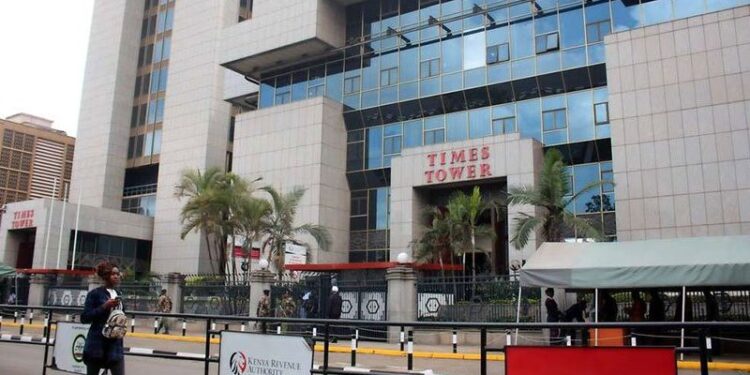In a significant development, investigations have uncovered how China Communications Construction Company Ltd, a prominent Chinese firm, fraudulently evaded taxes amounting to over KSh 1 billion. The company reportedly transferred income through shell companies to accounts in China, utilizing a sophisticated tax evasion strategy known as the ‘missing trader’ scheme. This was highlighted in a case presented before the Tax Appeals Tribunal (TAT), where the company sought to overturn a tax assessment of KSh 1,047,557,661 imposed by the Kenya Revenue Authority (KRA).
China Communications Construction Company Ltd, a majority state-owned multinational engineering and construction giant, has been a key player in major infrastructure projects globally, including highways, bridges, tunnels, and railways. However, the company has recently come under scrutiny for its tax practices in Kenya.
The KRA conducted a thorough audit of the company’s financial affairs, leading to a tax assessment issued on February 3, 2023, covering VAT and income tax. The company challenged this assessment, claiming the audit was erroneous both in fact and law. However, after hearing submissions from both sides, the Tribunal upheld the KRA’s assessment and dismissed the company’s appeal on August 9, 2024.
The KRA’s investigation revealed that the company was involved in an intricate tax evasion scheme. The firm allegedly inflated its input VAT claims for purchases that were either not incurred or unrelated to genuine business activities. This was done using fictitious invoices from fraudulently registered or non-existent companies, with the intent to reduce its tax liabilities.
Evidence presented to the Tribunal showed that the company claimed input VAT for goods and services that were never supplied. The fraudulent VAT claims were linked to six shell companies—Dial an Errand Ltd (KSh 638,251,386), Haru Limited (KSh 156,532,074), Njafos Holdings Ltd (KSh 256,932,293), Masaviru Investment Limited (KSh 157,035,000), Math and Kith Investment Company Limited (KSh 213,448,586), and Lunza Solutions Limited (KSh 221,061,000). These companies, with no physical addresses, further claimed input VAT from another set of shell companies, creating a complex web of fraudulent transactions.
The KRA’s audit further revealed that the directors of these shell companies were either unaware of the companies’ existence or had their identities fraudulently used to register the entities. For instance, George Makuthi Nderitu, the account signatory for Njafos Holdings Limited, was different from the registered director, Simon Musyimi Musyoki. Similarly, Suleiman Odhiambo Oganga, the registered director of Benlaz Company, stated that his identity had been used without his knowledge. Other directors, such as Lassina Coulibaly of Colila Limited, had left Kenya years before the transactions took place, further highlighting the fraudulent nature of the scheme.
Financial records demonstrated that after receiving payments for supposed construction materials, these shell companies immediately transferred the funds to USD accounts, which were then wired to overseas accounts, including those in China. This pattern of transactions, according to the Tribunal, did not reflect genuine commercial activities but rather an elaborate scheme to evade taxes in Kenya.
The Tribunal concluded that the company failed to counter the fraud and tax evasion claims raised by the KRA. The burden of proof shifted to the company once the KRA’s witness testified, but the company did not provide any substantial evidence to rebut the claims. The Tribunal noted that the company’s transactions did not align with normal commercial practices, particularly in arms-length transactions.
In its ruling, the Tribunal emphasized that it is uncommon for all entities involved in legitimate business transactions to simultaneously adopt such fraudulent practices, such as lacking proper documentation, converting funds to USD, and transferring them to overseas accounts. The decision marks a significant victory for the KRA in its ongoing efforts to combat tax evasion and enforce compliance among multinational corporations operating in Kenya.





